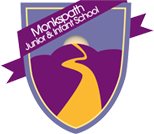Our Curriculum
We are a very large primary school, bonded by our highly prized School Values and seated right in the heart of Solihull in the West Midlands. We take pride in celebrating the rich diversity of our families and community and from learning from each other. Ours is a happy school, with passionate staff who see children as individuals and work enthusiastically to ensure all of our children thrive. The whole child is at the centre of all we do and all of the decisions we take.
We are ambitious for every single one of our children, we are inclusive and believe in every child’s right to be happy, successful and to be prepared for their future lives as learners and as members of society. This belief underpins every aspect of school life, of working in partnership with our families and drives all that we do.
We know children achieve when they are safe, challenged and purposefully engaged. To this end, we strive for academic rigour and excellence through an enriched, creative and tailored curriculum, helping all children to develop positive attitudes toward themselves and others and setting them on the path of life-long learning with the knowledge, attributes, beliefs and skills that they need to succeed.
We strive to ensure that every child will be the best they possibly can be tomorrow…
…without forgetting that they are someone very special today.
What we teach
The design of our curriculum at Monkspath School provides rich and relevant experiences which inspire pupils to learn, grow and flourish. We intertwine the teaching of both knowledge and skills, alongside developing essential learning behaviours and embedding the skills that our children will need for future learning. Central to this is the constant reinforcement of our School Values which are both an outcome of our curriculum and are pivotal in the curriculum choices we make.
Our curriculum not only meets national requirements, but is uniquely developed by us to meet the needs of our pupils, our school and our local community. Gaining proficiency as a reader is key to accessing all other subject areas and therefore holds a place of priority for all children, beginning in the Early Years alongside numeracy and writing.
Our curriculum is personalised around our children’s needs, reflecting the backgrounds and experiences of the wide range of pupils we have from family heritages that are locally based or are rooted from around the globe. It is outward-facing, setting learning in local and global contexts wherever possible; it celebrates diversity and unity and ensures that learning is relevant, purposeful and sequenced.
Curriculum plans are continuously under review ensuring that they are fit for purpose and that they provide benchmarks in learning, detailing what we want our children to acquire by specific end points.
How we teach
Our Curriculum Design:
- Develops sequential, progressional learning, where pupils know more and can do more than before. It builds on what they have been previously taught and understand and how this fits with what they will be learning next.
- Has a strong focus on subject disciplines and subject-specific skills and knowledge.
- Considers depth and breadth and provides frequent opportunities to revise, practice, memorise and reshape previous learning.
- Provides clear links to purposeful assessment.
- Reflects the needs and views of our children developing their skills, interests, strengths and areas of relative weakness.
- Underpins the development of our children’s resilience, character and personality.
- Reinforces a shared understanding of our School Values.
You can find out further information about our curriculum by contacting your child's teacher or the School Office.
Year Group Curriculum Overviews
You can find information about what our children learn in each year group, if you need more specific information then please do ask us by contacting the school office or your child's teacher through the appropriate Year Group email address.
Year Group curriculum overviews for Years 1-6 can be found by clicking here.
Whole School Curriculum
Please follow the links below for details of our whole school curriculum in each subject area.
| English | Mathematics | Science |
| Computing | Online Safety | History |
| Geography | Art and Design | Design and Technology |
| Music | Spanish | Physical Education |
| Religious Education | Relationships and Health Education | |
Details of our Early Years curriculum can be found here.


